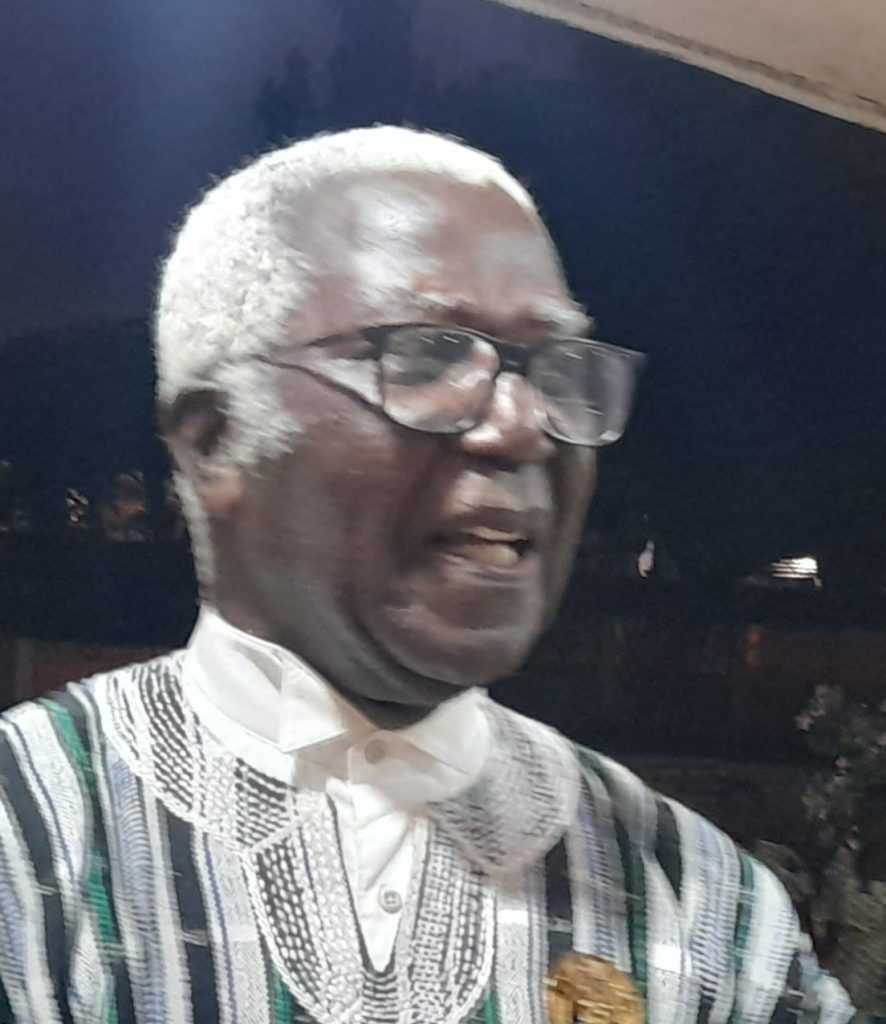By Ernest Nutsugah
Accra, Nov. 18, GNA – A retired professor of Botany at the University of Ghana, Prof Alfred Apau Oteng-Yeboah, has joined Civil Society Organisations in kicking against mining in forest reserves.
The Media Coalition Against Galamsey and OccupyGhana recently issued a joint statement demanding, among other things, a law prohibiting mining and related activities in forest reserves and significant biodiversity areas in the country.
The groups called for a revocation of the Environmental Protection (Mining in Forest Reserves) Regulations, 2022 (L.I. 2462), which “gives the President the power to give written approval to a mining company to undertake mining activity in a biodiversity area in the national interest”.
Prof Oteng-Yeboah, speaking at a public Lecture at the Ghana Academy of Arts and Sciences (GAAS) in Accra, agreed that the legislation (L.I 2462) “is not in the public interest and should be repealed by Parliament”.
“We should not be in a hurry to offer parcels of landscapes and/or waterscapes for projects that will compromise the ecosystem integrity of the country,” he stated, among other recommendations which he believed would help perverse the integrity of Ghana’s rich vegetation and landscape.
He was addressing the topic: “Realising The Ecosystem Integrity of The Ghanaian Environment for National Development,” which formed part of a series of lectures by GAAS to mark the 2023 Founder’s Week celebration.
Prof Oteng-Yeboah, also the Chair of the Trusteeship Board of A Rocha Ghana, an environmental advocacy group, expressed concern about human activities which endangered the environment and “our existence”.
“We should all feel ashamed to allow our environment to get to this level of chaos…I want to suggest that our response to this shame should be one of regret, lament, repentance, reflection, and action,” he said.
The GAAS Fellow noted that the country was in “an environmental crisis,” affecting “development, cohesion, and livelihoods,” hence the need for urgent steps in order not to undermine the progress made in nation-building.
Part of the “crisis management” actions, he said, should include “a ban on future exploitation of wetlands and other wilderness areas until after evaluation and assessment of the extent of damage already done”.

He asked the Environmental Protection Agency (EPA), National Commission on Civic Education (NCCE), and the National Development Planning Commission (NDPC) to pursue their mandates on the environment while Metropolitan, Municipal and District Assemblies (MMDAs) enforced environmental by-laws.
Prof Oteng-Yeboah again indicated that “proposed petrochemical hub projects at Keta and Nzema should be suspended until impacts on the ecosystems have been studied and analysed and remedies for damages are cleared.”
“The mining license to mine gold on the Amanzule [in the Western Region] should be stopped immediately because of its impact on the fragile aquatic wetland ecosystem and the livelihoods of the people,” he added.
While urging traditional leaders to exert their authority of keeping the environment clean and secure, he also called for a “national consciousness and patriotism within state institutions and among staff responsible for managing our environmental resources.”
“NDPC and Ghana Statistical Service (GSS) must team up to work with Minerals and Lands Commissions to provide knowledge about the effective and sustainable use of Ghanaian natural biological and genetic resources on one hand and non-renewable resources on the other,” he said.
GNA